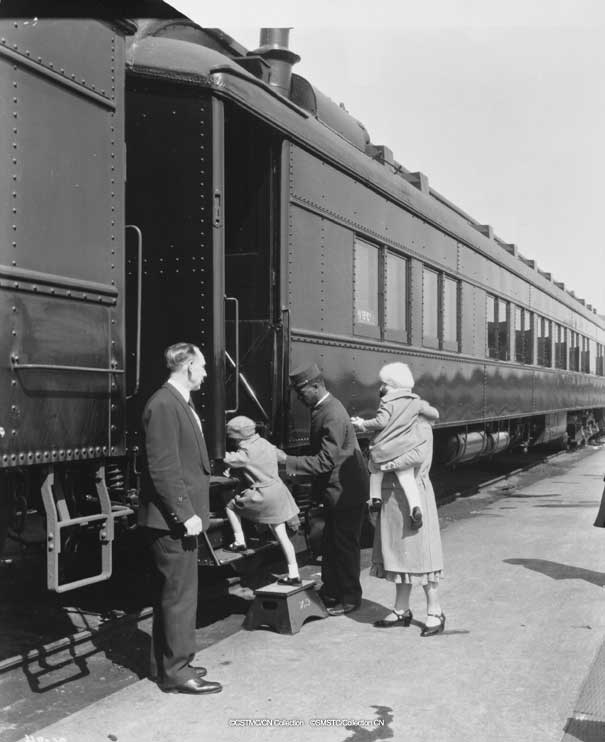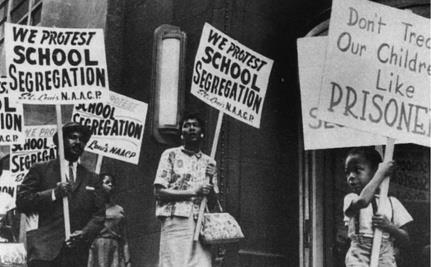Employment / Workplace
A result of successful Anti-black racism is not the presence of (new) privileges but the absence of systemic barriers. Addressing anti-black racism and being an anti racist is an extremely important aspect of inclusion and equity. It paves way for more diversity and invites individuals from different backgrounds and experiences to the table.

Short History of Black Canadians & Recognizing our Communities
Mathieu was very privileged in that he had great language skills and the Europeans favored him but that wasn’t the case for many blacks that came after him (Randstad, 2021).
Many blacks that escaped slavery in America still came to Canada and were enslaved.

Throughout the First World War, Black groups and individuals also worked to manufacture essential goods at home, volunteered as labourers and in hospitals, and helped raise funds. Due to their willingness to support the country, Black women were often assigned the most dangerous tasks: working with explosives in ammunition factories (Randstad, 2021).
In the early 20th century black men were seen as a source of cheap and abundant labour. These porters did work that was often demeaning, under poor conditions (Randstad, 2021).
This led to improvements in the working conditions on the Canadian railway, with Canadian Pacific Rail agreeing to increase wages and offer more time off. The powerful actions of Black porters reflected the struggle of all Black workers in Canada, which began a movement for change (Randstad, 2021).

Canadian lawmakers then began to consider a federal law to create equal opportunities by prohibiting discrimination (Canadian Encyclopedia).
Ontario was the first to pass this law (Canada’s human rights law).
Led to many other policies such as the Canada Fair Employment Practices Act

The Canada Fair employment act, is an implemented by the government of Cananda to Prevent Discrimination in regard to Employment and Membership in Trade Unions by reason of Race, National Origin, Colour or Religion. The Act applies to any work, undertaking, or business under the legislative authority of Canada’s Parliament including, but without limiting the generality of the foregoing.
Diversity, Equity & Inclusion
Diversity: The practice or quality of including or involving people from a range of different social and ethnic backgrounds and of different genders, sexual orientations, etc.
Equity: Workplace equity is the concept of providing fair opportunities for all of your employees based on their individual needs.
Inclusion: Inclusion refers to that culture in which a variety of personnel can feel comfortable, confident to be themselves, and work in the way that suits their needs and which meets your business needs. Inclusion will ensure that everyone feels valued, and importantly, contributes.

Video Resources
DID YOU KNOW?
Source: StatCanada
Unemployment
The unemployment rate for Black women and men was about one and a half times higher than the rate for women and men in the rest of the population.
Income
The median annual wages of Black men and women were lower than those of their counterparts in the rest of the population, by close to $13,000 among men and by $3,400 among women.
Income
Only a small gap existed between the median annual wages of Black women and women in the rest of the population, but the gap between Black men and men in the rest of the population was over $12,000.
Unemployment
The unemployment rate for Black men was two and a half times higher than that for men in the rest of the population.
Income
There was a gap of $20,000 between median annual wages of Black men and that for the other men of this region. For women, the gap was not as large ($8,000).
Unemployment
Unemployment rates for Black women and men were more than one and a half times higher than those for women and men in the rest of the population.
Income
The gap in median annual wages between Black men and men in the rest of the population was over $20,000, and the gap between Black women and women in the rest of the population was close to $13,000.
Income
Median annual wages were largely lower for Black women and men (by $23,000) than for their counterparts in the rest of the population, with gaps of $15,000 among women and $23,000 among men.
Unemployment
Unemployment rates for Black women and men were more than one and a half times higher than those for women and men in the rest of the population.
Income
Gaps existed in median annual wages between the Black population and the rest of the population, but the gap between Black men and men in the rest of the population was greater than the gap between Black women and women in the rest of the population.
Unemployment
Unemployment rates for Black women and men were nearly double those of their counterparts in the rest of the population.
Unemployment
Unemployment rates for Black women and men were nearly two times higher than the rates for their counterparts in the rest of the population.
Income
The gap in median annual wages between Black women and women in the rest of the population was under $10,000, whereas the gap between Black men and men in the rest of the population was over $22,000.








DID YOU KNOW?
Source: StatCanada
Toronto
Unemployment
The unemployment rate for Black women and men was about one and a half times higher than the rate for women and men in the rest of the population.
Income
The median annual wages of Black men and women were lower than those of their counterparts in the rest of the population, by close to $13,000 among men and by $3,400 among women.
Vancouver
Income
Only a small gap existed between the median annual wages of Black women and women in the rest of the population, but the gap between Black men and men in the rest of the population was over $12,000.
Halifax
Unemployment
The unemployment rate for Black men was two and a half times higher than that for men in the rest of the population.
Income
There was a gap of $20,000 between median annual wages of Black men and that for the other men of this region. For women, the gap was not as large ($8,000).
Calgary
Unemployment
Unemployment rates for Black women and men were more than one and a half times higher than those for women and men in the rest of the population.
Income
The gap in median annual wages between Black men and men in the rest of the population was over $20,000, and the gap between Black women and women in the rest of the population was close to $13,000.
Ottawa
Income
Median annual wages were largely lower for Black women and men (by $23,000) than for their counterparts in the rest of the population, with gaps of $15,000 among women and $23,000 among men.
Winnipeg
Unemployment
Unemployment rates for Black women and men were more than one and a half times higher than those for women and men in the rest of the population.
Income
Gaps existed in median annual wages between the Black population and the rest of the population, but the gap between Black men and men in the rest of the population was greater than the gap between Black women and women in the rest of the population.
Montreal
Unemployment
Unemployment rates for Black women and men were nearly double those of their counterparts in the rest of the population.
Edmonton
Unemployment
Unemployment rates for Black women and men were nearly two times higher than the rates for their counterparts in the rest of the population.
Income
The gap in median annual wages between Black women and women in the rest of the population was under $10,000, whereas the gap between Black men and men in the rest of the population was over $22,000.
Educational Resources







Hidden Figures (Based on a true Story)
Through the lives of 3 female African American mathematicians the movie highlights the double discrimination black women face through sexism and racism in the workplace. Especially in places of distinction and power such as NASA in this case. This movie is a powerful educational tool to help foster an individual’s privilege as well as encourage resiliency when faced with hardships in institutions as black individuals.
Available on: Netflix, Amazon Prime, Disney+, Cineplexstore

The Hate U Give
This movie highlights how the main character Starr (Amanda Stenbgerg) shows her grappling with the difficulties of being a black teenager in a predominantly white area, and the feeling of belonging to one world while living in another. The concept of imposter syndrome is evident in this film and powerful in the discussion of how to combat this and educate those around you.
Available on: Netflix, Amazon Prime, Disney+, Cineplexstore

Fences (2016)
This film is derived from one of the many plas written by August Wilson to depict the discrimination the Maxson family faced living in the post-World War II-era, depressed Hill Disrict neighborhood of Pittsburgh. Throughout the film the main character Tror (Denzel Washington) highlights the ways in which systematic racism disadvantaged him in athletic institutions, workplace, housing, and lastly education.
Available on: Netflix, Amazon Prime, Acorn TV

Diversity in the Workplace: Eye-Opening Interviews to Jumpstart Conversations about Identity, Privilege, and Bias
by Bärí A. Williams
In order to create an inclusive working environment, it is important for companies to understand the experiences that diverse employees face in the workplace. Diversity in the Workplace is a guided tour of what it means to be a minority in today’s labor force. This book incorporates 25 real life examples and explores real world issues in a modern workday dynamic for members of marginalized communities and managers looking to equalize an imbalance.
Available on: Amazon Prime, Audiobook, Kindle

How To Be An Antiracist
By: Ibram Kendi
Antiracism is a transformative concept that reorients and re-energizes the conversation about racism—and, even more fundamentally, points us toward liberating new ways of thinking about ourselves and each other. At its core, racism is a powerful system that creates false hierarchies of human value; its warped logic extends beyond race, from the way we regard people of different ethnicities or skin colors to the way we treat people of different sexes, gender identities, and body types. Racism intersects with class and culture and geography and even changes the way we see and value ourselves. In How to Be an Antiracist, Kendi takes readers through a widening circle of antiracist ideas—from the most basic concepts to visionary possibilities—that will help readers see all forms of racism clearly, understand their poisonous consequences, and work to oppose them in our systems and in ourselves.
Available on: Amazon Prime, Audiobook, Kindle

Erasing Institutional Bias: How to Create Systemic Change for Organizational Inclusion
By: Tiffany Jana & Ashley Diaz Mejias
While it is easy to identify intentionally built systems of oppression like Jim Crow or the paralysis caused by the glass ceiling for women in the workplace, confronting systems that perpetuate subtle, unconscious bias is much harder. Erasing Institutional Bias will help people tackle structural bias regardless of their positional power. Institutional bias afflicts all industries. Jana and Mejias focus their attention on bias in the workplace and give readers practices and activities to create organizational trust to challenge these implicit biases. Erasing Institutional Bias will help people recognize that each of us has the power to affect systemic bias. Each of us can evaluate our own current role in perpetuating systemic bias and define our new role in breaking down systemic bias.
Available on: Amazon Prime, Audiobook, Kindle
Education Resources
Hidden Figures (Based on a true Story)
Through the lives of 3 female African American mathematicians the movie highlights the double discrimination black women face through sexism and racism in the workplace. Especially in places of distinction and power such as NASA in this case. This movie is a powerful educational tool to help foster an individual’s privilege as well as encourage resiliency when faced with hardships in institutions as black individuals.
Available on: Netflix, Amazon Prime, Disney+, Cineplexstore
The Hate U Give
This movie highlights how the main character Starr (Amanda Stenbgerg) shows her grappling with the difficulties of being a black teenager in a predominantly white area, and the feeling of belonging to one world while living in another. The concept of imposter syndrome is evident in this film and powerful in the discussion of how to combat this and educate those around you.
Available on: Netflix, Amazon Prime, Disney+, Cineplexstore
Fences (2016)
Thus film is derived from one of the many plas written by August Wilson to depict the discrimination the Maxson family faced living in the post-World War II-era, depressed Hill Disrict neighborhood of Pittsburgh. Throughout the film the main character Tror (Denzel Washington) highlights the ways in which systematic racism disadvantaged him in athletic institutions, workplace, housing, and lastly education.
Available on: Netflix, Amazon Prime, Acorn TV
Diversity in the Workplace: Eye-Opening Interviews to Jumpstart Conversations about Identity, Privilege, and Bias
by Bärí A. Williams
In order to create an inclusive working environment, it is important for companies to understand the experiences that diverse employees face in the workplace. Diversity in the Workplace is a guided tour of what it means to be a minority in today’s labor force. This book incorporates 25 real life examples and explores real world issues in a modern workday dynamic for members of marginalized communities and managers looking to equalize an imbalance.
Available on: Amazon Prime, Audiobook, Kindle
How To Be An Antiracist
By: Ibram Kendi
Antiracism is a transformative concept that reorients and re-energizes the conversation about racism—and, even more fundamentally, points us toward liberating new ways of thinking about ourselves and each other. At its core, racism is a powerful system that creates false hierarchies of human value; its warped logic extends beyond race, from the way we regard people of different ethnicities or skin colors to the way we treat people of different sexes, gender identities, and body types. Racism intersects with class and culture and geography and even changes the way we see and value ourselves. In How to Be an Antiracist, Kendi takes readers through a widening circle of antiracist ideas—from the most basic concepts to visionary possibilities—that will help readers see all forms of racism clearly, understand their poisonous consequences, and work to oppose them in our systems and in ourselves.
Available on: Amazon Prime, Audiobook, Kindle
Erasing Institutional Bias: How to Create Systemic Change for Organizational Inclusion
By: Tiffany Jana & Ashley Diaz Mejias
While it is easy to identify intentionally built systems of oppression like Jim Crow or the paralysis caused by the glass ceiling for women in the workplace, confronting systems that perpetuate subtle, unconscious bias is much harder. Erasing Institutional Bias will help people tackle structural bias regardless of their positional power. Institutional bias afflicts all industries. Jana and Mejias focus their attention on bias in the workplace and give readers practices and activities to create organizational trust to challenge these implicit biases. Erasing Institutional Bias will help people recognize that each of us has the power to affect systemic bias. Each of us can evaluate our own current role in perpetuating systemic bias and define our new role in breaking down systemic bias.
Available on: Amazon Prime, Audiobook, Kindle
Contact A Member Of Our Team
 Debra Williams
Debra Williams
Debra Williams has been working in leadership roles embedding diversity and inclusion for equitable outcomes for over 25 years. She is available to offer advisory services on how to deal with toxic working environments, journey map unequal processes to clarify root causes, outline mental, economic, interpersonal and physical consequences of discrimination, and determine remedies and actions for positive results.
She can be reached at debra@debrawilliams.ca to set up a phone call or virtual meeting.
